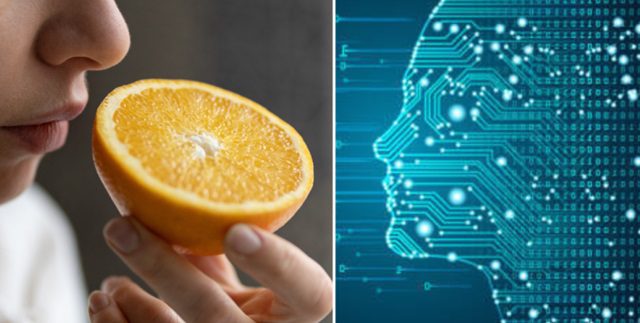BTN News: In the ever-evolving landscape of artificial intelligence (AI), the sense of smell has remained an elusive frontier, challenging even the most advanced researchers. Yet, Alex Wiltschko, a former Google researcher and the visionary founder of the startup Osmo, is breaking new ground by tackling this olfactory enigma. His innovative approach could forever change our understanding and reproduction of scents, opening doors to applications that span from perfume creation to healthcare. Wiltschko’s journey from Google to Osmo has been driven by a desire to transcend the limitations of current technology and create a “map of primary odors,” a groundbreaking concept that could reshape industries reliant on aroma.
During his tenure at Google, Wiltschko honed his expertise in machine learning, a skill set he now applies to Osmo’s ambitious project. This map of odors, meticulously crafted through the analysis of over 5,000 aromatic molecules, categorizes scents into familiar classifications such as fruity, floral, and mentholated. What sets this classification apart is its ability to predict the smell of molecules yet to be discovered. This predictive power is not just a novel scientific achievement but holds immense potential for various industries, enabling the creation of sustainable, digitally generated, and cloned scents.
The road to this technological breakthrough has been anything but straightforward. Wiltschko and his team had to build a comprehensive dataset from scratch, as existing perfume industry libraries were inadequate for their research needs. The result is an extensive aroma library, which equips AI not just to identify but also to generate and replicate scents digitally. This capability could revolutionize how we manufacture aromatic molecules, paving the way for more sustainable practices in the production of everyday products like perfumes, shampoos, and detergents.
Wiltschko’s vision extends beyond these immediate applications. He envisions a future where his technology could play a pivotal role in improving disease detection, monitoring pandemics, and even optimizing food production. The implications of such advancements are profound, suggesting that AI could soon become an essential tool in sectors far removed from its original purview.
Meanwhile, in a parallel innovation in the realm of AI and food technology, NotCo, a Chilean startup, is making waves by harnessing AI to create plant-based alternatives to traditional animal products. At the heart of this endeavor is Giuseppe, an AI system that dives deep into the molecular science of food to replicate the taste and texture of products like meat, milk, and mayonnaise using only plant-based ingredients.
NotCo’s approach is methodical and data-driven, involving a four-stage process. It begins with Giuseppe Biagio, an interactive platform that allows users to experiment with and combine plant-based ingredients to develop new recipes. This is followed by Giuseppe Discovery, which focuses on gathering extensive data on plant ingredients and their industrial counterparts.
The real magic happens in the third stage, Giuseppe Toolbox, where recipes are meticulously optimized to ensure that the taste, texture, and functionality of the food products are consistently replicated. Finally, Giuseppe Flora offers targeted recommendations from a vast database of over 300,000 plant-based ingredients, identifying the most suitable flavor molecules for each culinary creation.
The convergence of AI with sectors as diverse as fragrance production and food technology underscores the transformative potential of machine learning. Both Wiltschko’s and NotCo’s innovations highlight how AI is not just a tool for automation but a creative force capable of pushing the boundaries of what we thought was possible. As these technologies continue to evolve, they promise to reshape industries, offering more sustainable, efficient, and innovative solutions that align with the demands of the future.


